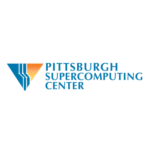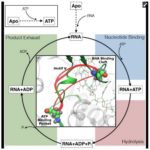William Kramer has been selected as the next director of the Pittsburgh Supercomputing Center. “It’s our great fortune to recruit Bill, who is known and honored nationally for his leadership and innovations in the world of supercomputing,” said Rob A. Rutenbar, senior vice chancellor for research at the University of Pittsburgh. “In many ways, his career path is emblematic of the role of supercomputing in modern scientific research. The field has grown specifically because of his innovations and commitment.”
HPE to Build Bridges-2 Supercomputer at PSC
NSF is funding $10 Million for a new supercomputer at the Pittsburgh Supercomputing Center (PSC), a joint research center of Carnegie Mellon University and the University of Pittsburgh. We designed Bridges-2 to drive discoveries that will come from the rapid evolution of research, which increasingly needs new, scalable ways for combining large, complex data with high-performance simulation and modeling.”
Job of the Week: Director of Facilities Technologies at PSC
The Pittsburgh Supercomputing Center is seeking a Director of Facilities Technologies in our Job of the Week. “In this role, you will be responsible for directing all operations for PSC high-performance computing and storage resources, as well as planning, design, deployment, installation, maintenance and operation of future HPC systems.”
Job of the Week: Virtualization Infrastructure Engineer at PSC
The Pittsburgh Supercomputing Center is seeking a Virtualization Infrastructure Engineer in our Job of the Week. “In this role, you will primarily be responsible for developing and maintaining the infrastructure to deploy and maintain fleets of hosts (physical and virtual), containers and services for the variety of project-based resources PSC operates and have a hand in planning new directions.”
Job of the Week: Systems Automation Engineer at PSC
The Pittsburgh Supercomputing Center is seeking a Systems Automation Engineer in our Job of the Week. “In this role, you will primarily be responsible for developing and maintaining software tooling to enable scalable administration of a fleets of hosts (physical and virtual) for the variety of project-based resources PSC operates, with an eye toward migrating appropriate functionality to newer technologies including containers.”
Thorny Flat Supercomputer comes to West Virginia University
Today West Virginia University announced of one of the state’s most powerful computer clusters to help power research and innovation statewide. “The Thorny Flat High Performance Computer Cluster, named after the state’s second highest peak, joins the Spruce Knob cluster as resources. With 1,000 times more computing power than a desktop computer, the Thorny Flat cluster could benefit a variety research: forest hydrology; genetic studies; forensic chemistry of firearms; modeling of solar-to-chemical energy harvesting; and design and discovery of new materials.”
Pioneering and Democratizing Scalable HPC+AI at the Pittsburgh Supercomputing Center
Nick Nystrom from the Pittsburgh Supercomputing Center gave this talk at the Stanford HPC Conference. “To address the demand for scalable AI, PSC recently introduced Bridges-AI, which adds transformative new AI capability. In this presentation, we share our vision in designing HPC+AI systems at PSC and highlight some of the exciting research breakthroughs they are enabling.”
Agenda Posted for HP-CAST at SC18 in Dallas
Hewlett Packard Enterprise has posted their Agenda for HP-CAST once again this year at SC18. The event takes place Nov. 9-10 in Dallas. ” HP-CAST meetings typically include corporate briefings and presentations by HPE executives, technical staff, and HPE partners (under NDA), and discussions of customer issues related to high-performance computing.”
Supercomputer Simulations help fight Dengue Virus
Researchers are using supercomputers to combat the Dengue virus and related diseases spread by mosquitos. “Advanced software and the rapid calculation speeds of both Comet and Bridges made the current simulations possible. In particular, the graphics processing units (GPUs) on Comet enabled the team to simulate the motion more efficiently than possible if they had used only the central processing units (CPUs) present on most supercomputers.”
Hyperion Research Announces HPC Innovation Excellence Award Winners
Hyperion Research recently announced the newest recipients of the HPC Innovation Excellence Awards. “High performance computing contributes enormously to scientific progress, economic competitiveness, national security and the quality of human life,” said Bob Sorensen, Hyperion Research vice president of research and technology. “The winners of these awards have been judged to be among the world’s best at exploiting HPC to achieve important real-world innovations.”










